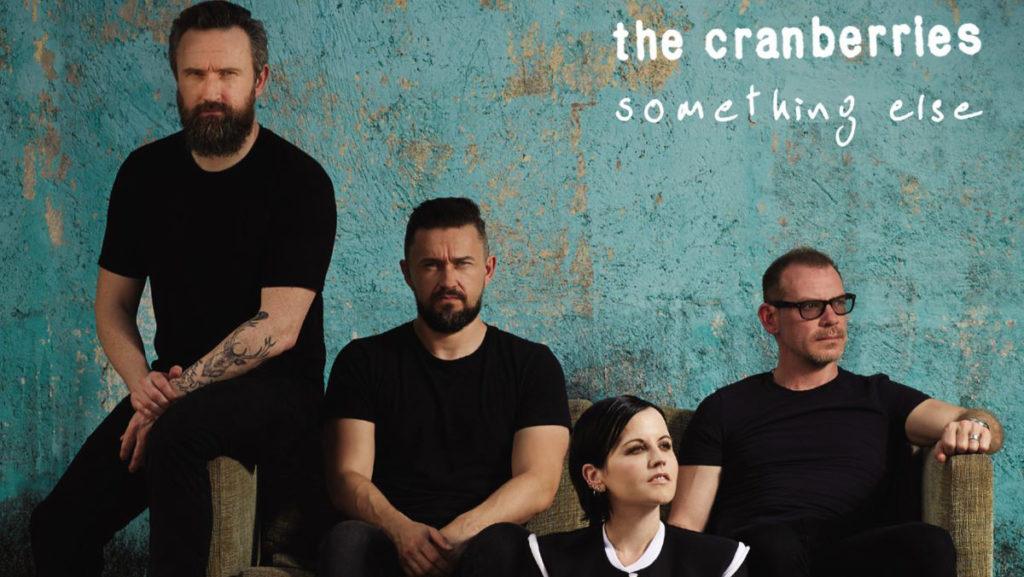Bands often try to reinvent themselves to keep up with current music trends. The Cranberries were able to do so by tapping into old songs. The Irish group has been serving the world a mix of ethereal and brooding alternative rock music since 1989. Their latest release, “Something Else,” came out April 28 and contains 10 unplugged versions of their hits and three new songs.
While the Cranberries strip down their sound, they also polish it, swapping effect-heavy electric guitars for acoustic guitars and orchestral instruments. The album features the Irish Chamber Orchestra, which reinvents classic tracks with lush soundscapes reminiscent of the rolling green hills of their home country.
The first song, the acoustic version of “Linger,” is similar to the original that was released in 1993 as it employs orchestral instruments and has an overall light, airy sound. However, the less intricate production and use of an acoustic guitar give the song a pure, open feel. The Cranberries have not compromised their musical sincerity or characteristic sound for the sake of being trendy or current — they’ve simply revamped it.
Next comes a completely new release, “The Glory.” Dolores O’Riordan’s vocals sound gentle and quaint in this piece as her slight brogue is subtly detectable. Her breezy voice floats atop the ambient timbers of orchestral instruments. The lyrics, optimistic yet cryptic, proclaim “Lost, I see the rose/ I see the glory in your eyes/ And winter comes/ And then it snows/ I see the glory in your eyes.” Romantic and fresh, “The Glory” fits right in with the older pieces featured on the album.
O’Riordan’s vocal tones range from sweet whispers to searing belts and growls. One song in which she utilizes her full toolbox of abilities is the acoustic version of “Zombie.” The track captures the intense sound of the original without the heavily distorted guitars the song is notorious for. Swapping distortion pedals and drum sets for bows and egg shakers, the acoustic version of “Zombie” becomes an emotional saga that is different but as effective as the protest-punk original.
The song references the ethnopolitical conflict that has plagued Ireland for generations. “Another mother’s breaking/ Heart is taking over/ When the violence causes silence/ We must be mistaken/ It’s the same old theme/ Since nineteen-sixteen/ In your head, in your head, they’re still fighting,” O’Riordan sings, referencing the 1916 Easter Rising in Ireland. The lyrics lament the way history repeats itself around the world through hatred and violence. “Zombie” doesn’t need guitar effects or heavy drums to be dramatic and effective — it speaks for itself.
Another new track, “Rupture,” appears seventh on the album and begins even more starkly than the songs that precede it. Arpeggiating piano notes and quiet percussion give the song a hollow and surreal sound. “You put a hole in my heart/ Rupture the hole in my heart” O’Riordan sings in a near-whisper as layered harmonies add dimension to the already otherworldly piece. The song has a dramatic, honest and intimate feel, taking the often cliched subject of heartbreak and making it sound bleak and genuine.
The last song on the album is titled after one of the simplest but most telling questions one could ask. “Why” begins crisply with acoustic guitar and minimal strings before building up to an almost–cinematic composition. “Somewhere in between here and heaven/ Somewhere in between where and why/ Somewhere in another dimension/ I can hear you asking me why,” O’Riordan sings wistfully. Her voice sounds pure and crystal clear. Toward the end of the song, layered “oohs” and “aahs” flourish before the album fades out as vaporous as it began.
Throughout “Something Else,” the Cranberries deliver simple, poignant and intimate messages. The 13-track album’s orchestral instrumentation seamlessly weaves together the old and the new. Their combination of Celtic and alternative rock sonorities blend seamlessly. Though “Something Else” only features three new pieces, the Cranberries manage to sound fresh and current.




















